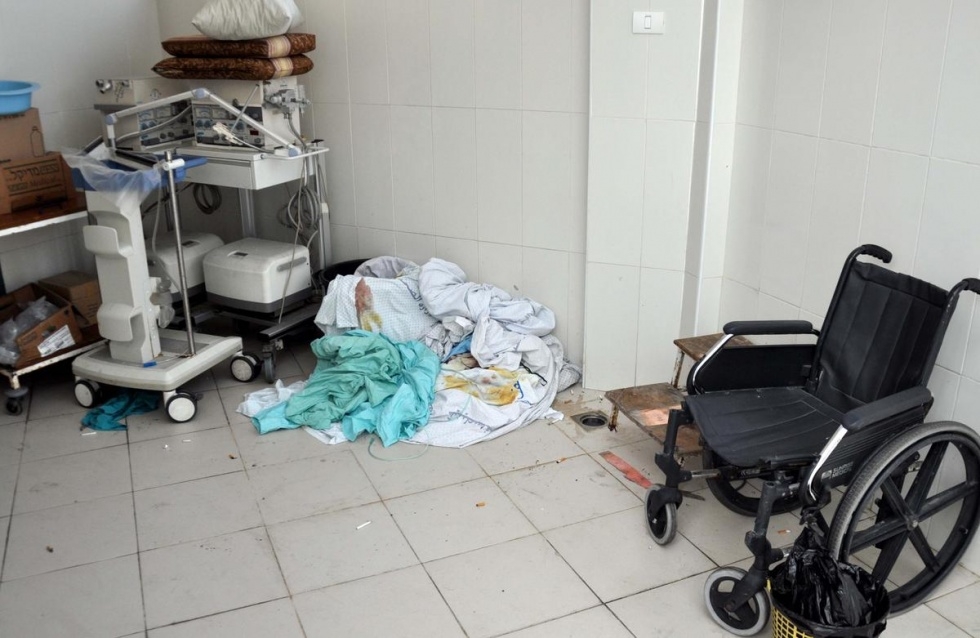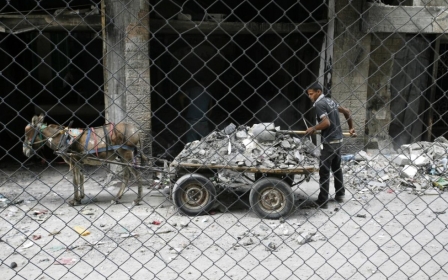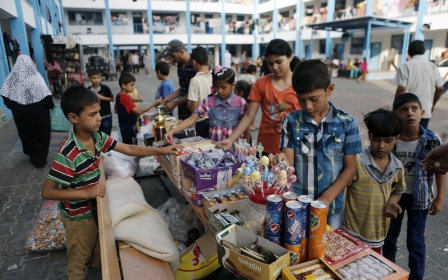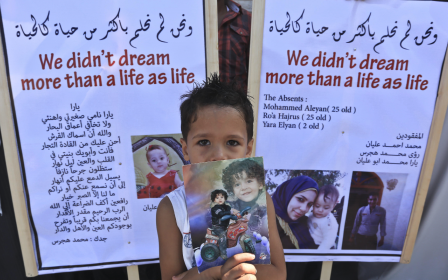Gaza hospital cleaners strike over unpaid salaries

GAZA CITY – Hospital cleaners across the Gaza Strip went on strike on Wednesday to demand overdue pay from the Palestinian Health Ministry.
The union of cleaning companies said in a statement that cleaners at all of Gaza's hospitals had joined the strike, which, it said, would last for three days.
Cleaners were striking, the union added, because they had not received salaries from the Palestinian Health Ministry for the last five months.
The union accused the new Palestinian unity government – unveiled in June – of "ignoring [Gaza's] cleaners and their dire humanitarian and economic situation."
The unity government is now technically responsible for hospital cleaners. But the latter complain that they have not been paid since the new government was drawn up in June.
In April, rival Palestinian factions Fatah and Hamas signed a reconciliation deal, which called for the formation of a national unity government.
The new government, however, has yet to assume responsibility for the Hamas-run Gaza Strip, hampering the disbursement of public-sector salaries in the coastal territory.
The government, for its part, says it needs a whopping $40 million a month to pay the salaries of the Gaza Strip's roughly 45,000 civil servants.
Hamas says that it reached agreement with Fatah that the new government would be responsible for paying Gaza's public-sector salaries.
Palestinian Health Ministry spokesman Ashraf al-Qodra, for his part, warned of the strike's potentially negative effect on patients at Gaza's hospitals.
"This strike could lead to a health crisis for patients and citizens in general," al-Qodra told Anadolu Agency.
He said the ministry had had to postpone all scheduled surgeries during an earlier strike by hospital cleaners.
Gaza's hospital cleaners staged a one-day strike last week, forcing government hospitals to postpone 180 scheduled surgeries, according to ministry officials.
Middle East Eye propose une couverture et une analyse indépendantes et incomparables du Moyen-Orient, de l’Afrique du Nord et d’autres régions du monde. Pour en savoir plus sur la reprise de ce contenu et les frais qui s’appliquent, veuillez remplir ce formulaire [en anglais]. Pour en savoir plus sur MEE, cliquez ici [en anglais].




